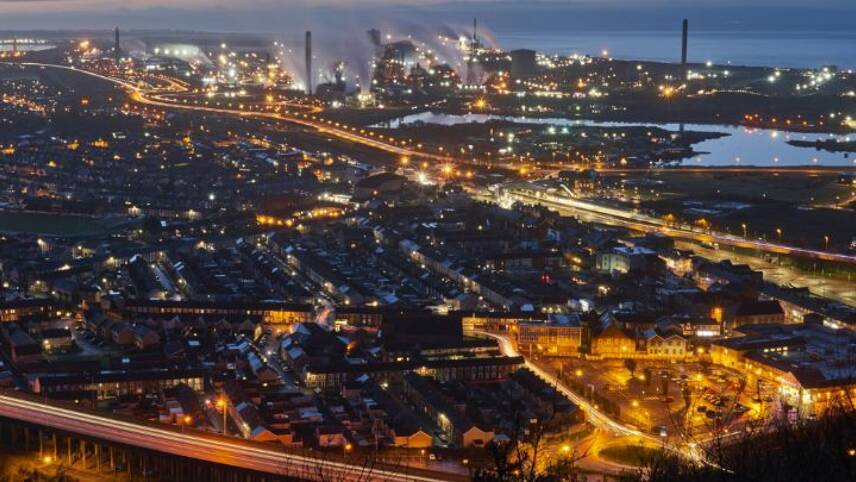Register for free and continue reading
Join our growing army of changemakers and get unlimited access to our premium content

Pictured: Industrial facilities at Port Talbot
The decision was made late on Tuesday (18 January) and marks a second consecutive decision of no action from the Authority.
Under the national ETS framework, the Authority can intervene in the market if average prices remain above a set threshold for three consecutive months. The UK’s ‘trigger price’ threshold is £56.58 per tonne and, in December, prices temporarily hit a record high of £80.97. Prices now stand at around £72 per tonne.
For context, the International Monetary Fund (IMF) recorded a global average carbon price of just $3 per tonne in 2020 and is recommending the implementation of a carbon price floor of $50—75 per tonne for wealthier nations.
The UK ETS Authority is permitted to ease prices by bringing forward the supply of allowances from future auctions, or to redistribute existing supplies of allowances. It said it took the decision not to take either action, but that future decisions will “not be prejudiced” and that it will “continue to monitor the market closely”.
No additional allowances, above what is already scheduled, will be released until the end of April.
“The UK ETS Authority recognizes the sensitivity of the issues under consideration in the context of concern about energy prices and determination to tackle climate change,” the government said in a statement.
“Ministers discussed these issues, acknowledging that any final decision was finely balanced.”
The Authority’s decision goes against recommendations put forward by British firms in energy-intensive industries, which are currently also bearing huge energy cost increases due to the global gas crisis. The Guardian reported earlier this month that these firms have paid around 10% more for each tonne of carbon generated, in recent weeks, than their EU-based counterparts.
Trade organisation The Energy Intensive Users Group (EIUG), a coalition of businesses in industries including steel and chemicals, released a statement from chairman Richard Leese on Tuesday.
It reads: “UK carbon prices have been consistently higher than those faced by our European competitors. This adds to the competitive disadvantage for UK businesses, a situation which is compounded by the impacts of significant energy price rises.
“With the huge cumulative cost pressures facing EIIs [energy intensive industries], it is inexplicable that the government and the UK ETS Authority has failed to use the tools immediately at its disposal to address this issue, which is largely associated with an immature UK carbon market.”
As well as implementing short-term measures to ease carbon pricing, the Government is also facing calls to better link the UK’s ETS with the EU’s, to help avoid future discrepancies in carbon pricing.
The UK ETS officially opened on 19 May 2021 and, in terms of its volume cap, is the fourth largest in the world. According to the International Energy Agency (IEA), more than 60 nations now have an ETS.
Sarah George


Please login or Register to leave a comment.